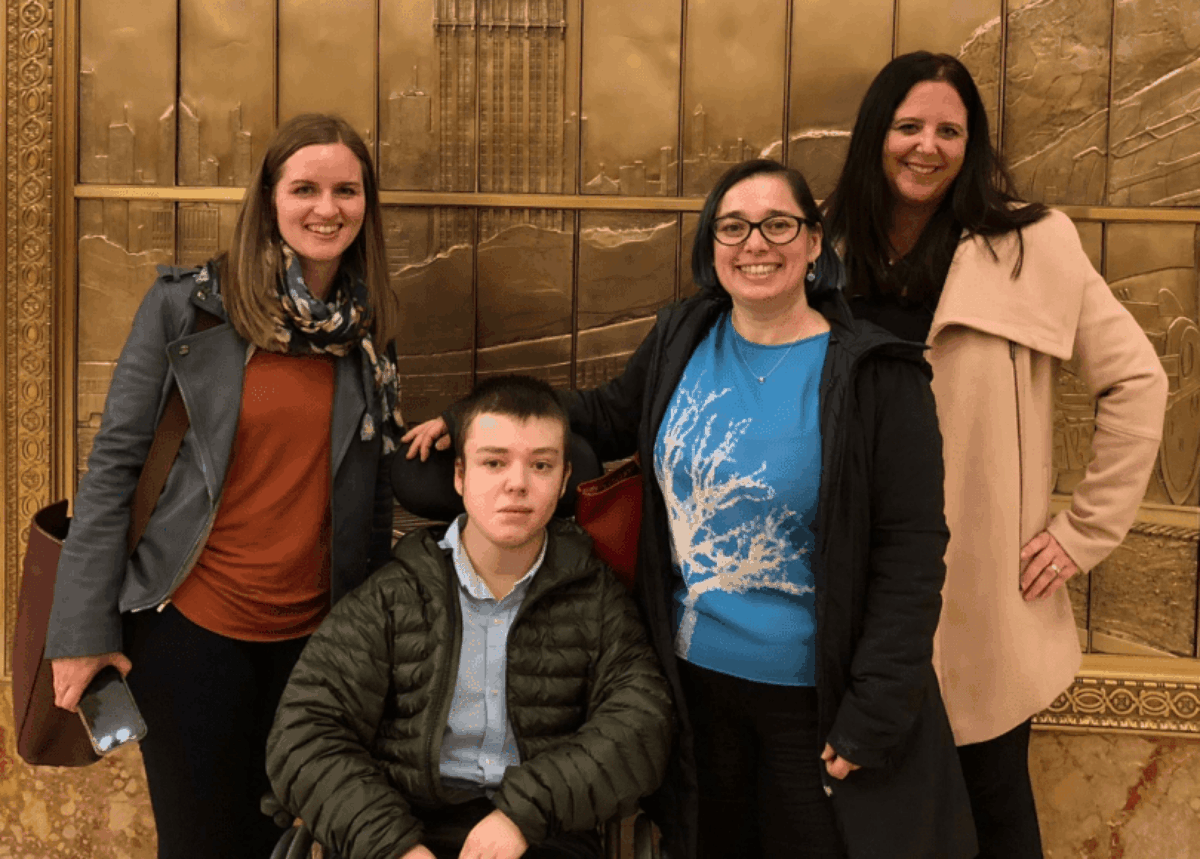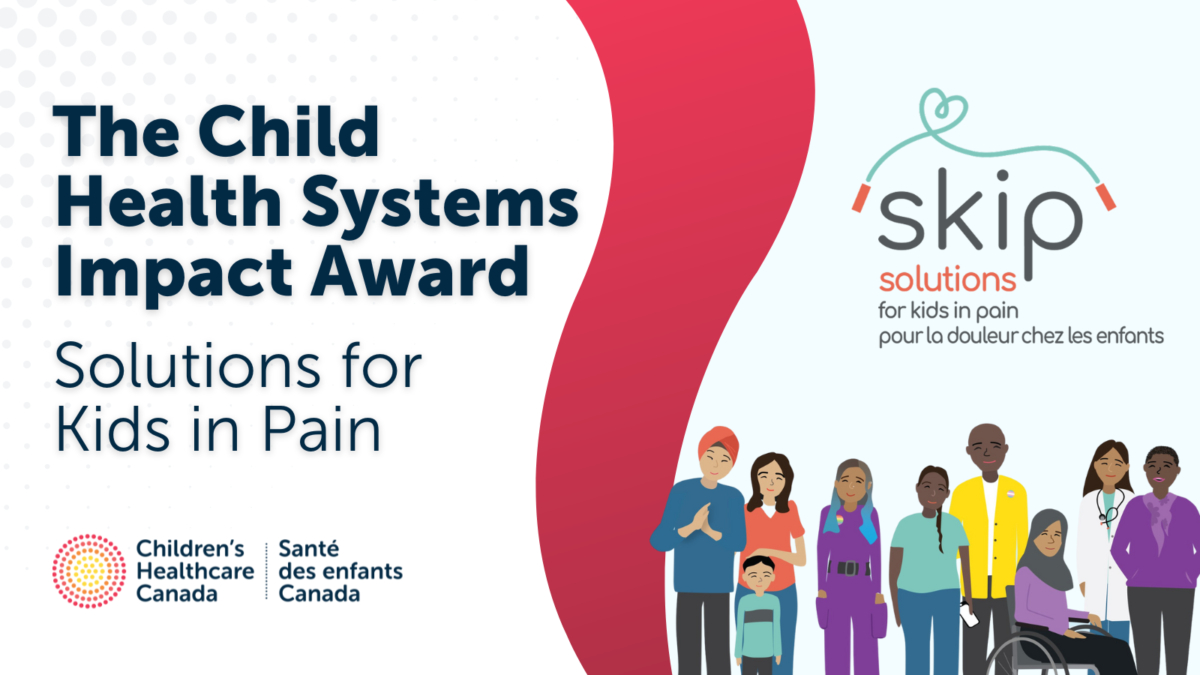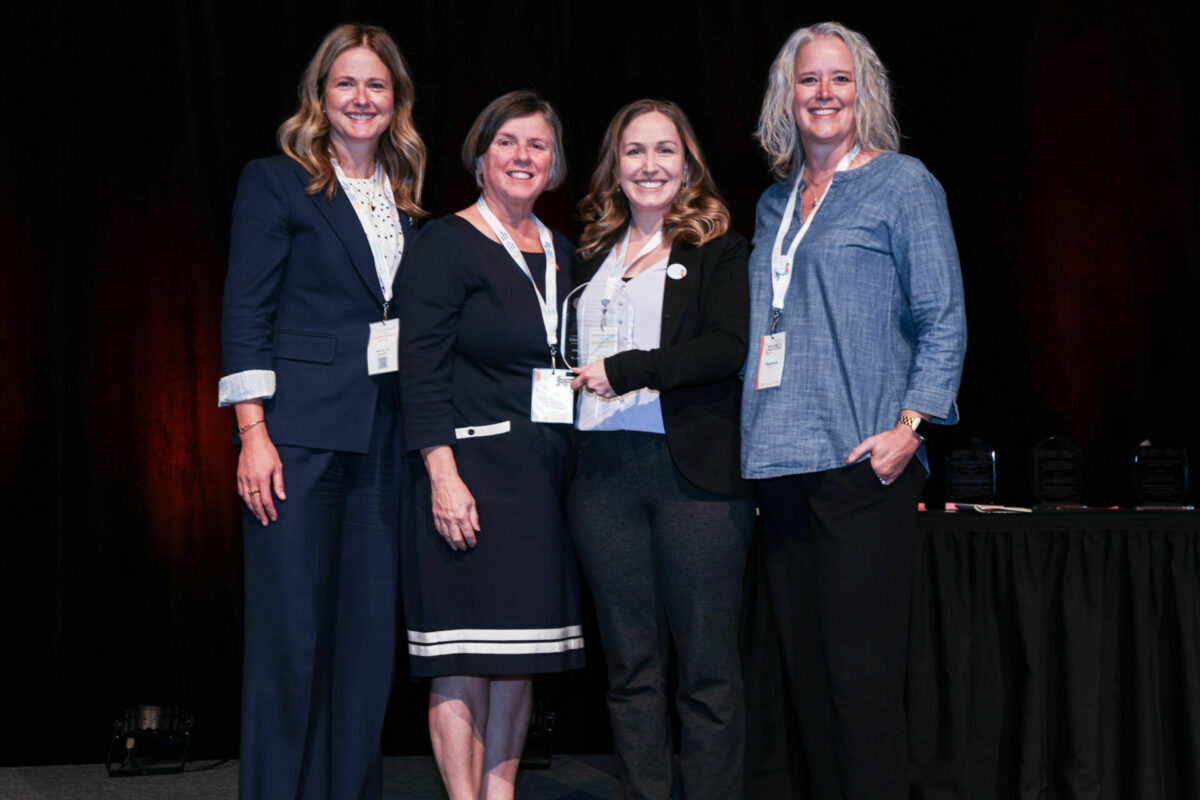One in five kids endure chronic pain. A new pain standard will soothe it
November 8, 2024
By Laura Eggertson
Dalhousie’s Dr. Christine Chambers and her colleagues at Solutions for Kids in Pain (SKIP) are encouraging hospitals to adopt Canada’s first Pediatric Pain Management Standard, which gives institutions like Halifax’s IWK Health Centre additional tools and support to prevent and treat the chronic pain one in five Canadian children endure.
When Isabel Jordan’s oldest child was in hospital to remove a bone tumour in their jaw, she watched helplessly while nurses and doctors performed excruciatingly painful medical procedures on them, without sedation.
Alex, who is non-binary (pronouns they/them), has a rare genetic condition that includes a sensory processing disorder. After the surgery, Alex had a tracheostomy and could not speak.
Too little to write things down, the six-year-old was unable to tell the nurses and doctors how much it hurt to receive injections, have fluids delivered through intravenous therapy, or have a catheter inserted or removed.
When Isabel and Tyler Jordan tried to ask for sedation or other ways to treat their child’s pain, the hospital staff dismissed the couple’s concerns.
“The doctors and nurses wouldn’t believe that the things they were doing, which they thought were no big deal, were actually horrifically painful for them,” Ms. Jordan remembers. “We didn’t have the tools to advocate for them.”
The Jordans stationed themselves at Alex’s bedside day and night, eventually refusing permission for any procedures until staff had provided adequate pain relief for Alex.

Eighteen years later, Ms. Jordan is working with Professor Christine Chambers, who holds a Canada Research Chair in Children’s Pain at Dalhousie University, to make sure hospitals and other healthcare organizations adopt the first national Pediatric Pain Management Standard.
The chronic pain children suffer is the reason Dr. Chambers and her colleagues at SKIP are meeting December 2 to 4 in Halifax. SKIP is a national knowledge mobilization network and a Research Centre at Dalhousie, for which she is the scientific director. The meeting’s goal is to develop an action plan to encourage health-care organizations to implement their new Pediatric Pain Management Standard—ideally, as essential to their accreditation process.
SKIP developed the standard with the Health Standards Organization, a global entity that works with leading experts and people with lived experience to develop standards, assessment programs and quality improvement solutions. Together, they developed 34 specific recommendations on how to deliver evidence-based, equitable, and person-centred pain care and support.
“Our goal is not to make pain management optional; our goal is to make it required,” says Chambers, a world leader in pain research in children and youth.
The initiative is critically important because close to 21 per cent of children and youth around the world live with chronic pain, or one in five, according to a new systematic review Dr. Chambers and her colleagues have just published.
Dr. Chambers and her co-authors analyzed the results of 119 studies from around the world. They found a higher percentage of girls than boys experience chronic pain, which can include headaches, back aches, abdominal pain, musculoskeletal pain, and generalized pain.
Discouragingly, says Dr. Chambers, the one in five figure is in line with what the last major review on children’s pain found in 2011.
“Despite decades of research focused on addressing the problem of pain in children, children are still suffering,” she says. “That speaks to the need for further knowledge mobilization.”
SKIP’s associate scientific director, Dr. Katie Birnie (PhD ‘16), chaired the group that developed the new standard, recognized as the world’s first pain standard for children. As part of the recommendations, the standard acknowledges systemic factors such as racism and trauma that contribute to health inequities and exacerbate children’s pain.
Dr. Chambers and the network of SKIP researchers, clinicians, patients, and other partners have concentrated on urging hospitals and institutions to adopt the standard that will acknowledge and help them relieve children’s pain.
Now they are also focusing on outreach to community hospitals, where children receive the majority of their care, and healthcare professionals who see children there.
“It’s difficult for kids to get access to the interdisciplinary pain treatment that’s been shown to be effective in most people,” Dr. Chambers says.
Dr. Chambers and Ms. Jordan want to make sure other children and families don’t experience the acute pain Alex suffered during and after surgery. Acute pain can set children up for chronic pain throughout their lives.
As the Strategic Lead, Patient Partnerships, Ms. Jordan brings other patient partners together to support Dr. Chambers’ projects, ensuring the direct experiences of children and youth and their families in coping with long-term pain inform the research and assist in disseminating knowledge about how to prevent and treat pain to professionals.
Those healthcare professionals need to treat pain as a patient safety issue, because when they don’t manage it, harmful effects result, Dr. Chambers says. Poorly managed, painful medical procedures are more likely to result in ongoing pain and complications, research indicates.
“What we now know from decades of research in animals and in humans is that poorly managed pain early in life actually changes the way you experience pain (forever),” she says.
In addition to their work on the national pain standard, Dr. Chambers and SKIP have produced and promoted 350 tools on pediatric pain management, held more than 450 consultations with hospitals and practitioners wanting to better manage children’s pain, and supported several children’s hospitals in Canada to achieve ChildKind certification.
ChildKind International offers certification to healthcare facilities that have demonstrated their excellence in assessing, preventing, and treating children’s pain.
The IWK Health Centre in Halifax received its ChildKind certification earlier this year – one of only five children’s hospitals in Canada to have it. The hospital is also working towards meeting any applicable recommendations in the Pediatric Pain Management Standard, says Dr. Krista Jangaard, the IWK’s president and chief executive officer.
The hospital works closely with Dr. Chambers and SKIP, and says the organization’s impact is not only national but global.
“SKIP has done a huge amount within the pediatric world to put this as an issue on the table,” Dr. Jangaard says.
The combination of ChildKind Certification and the hospital’s support for the pain standard means children and families coming to the IWK now encounter a more consistent culture of care, with many staff members trained to anticipate, prevent, treat, and manage pain, Dr. Jangaard says.
When a baby in the neonatal intensive care unit at IWK requires a needle stick, for example, nurses offer them sucrose, which calms and distracts them from pain, or staff encourage their mothers to breast-feed and cuddle them during the procedure – all practices designed to reduce babies’ discomfort.
“Here at IWK Health we’ve always been big champions of the fact that pain can be managed in children, it can be avoided, and it can be treated,” Dr. Jangaard says.
Thanks to the new pain standard, “now we know everybody will be called to live up to the same [national] standards in taking care of kids,” she adds.
The SKIP team’s work to raise awareness about the best ways to treat children’s pain drew the attention of Children’s Healthcare Canada. On Oct. 21, the national organization, which dedicates itself to accelerating innovation in health systems for children and youth, awarded SKIP its 2024 Child Health Systems Impact Award.

“The Awards Committee was most impressed by SKIP’s dedicated approach to understanding the needs of its knowledge user audiences, identifying critical gaps, and effectively organising existing resources and evidence,” the awards committee wrote.
SKIP is also a finalist for the 2024 Discovery Centre’s Science Champion award. They’ll learn if they’ve won on November 14th.
Although the awards and recognition help raise awareness of children’s pain, Alex’s experience demonstrates that it’s up to individual clinicians whether they apply best practices to alleviate it.
At Alex’s last interaction with a pediatric hospital, close to 15 years after doctors removed the tumour, an anesthesiologist refused to provide pain relief for an IV insertion before Alex’s imaging appointment, Ms. Jordan says.
Because Ms. Jordan had worked with Dr. Chambers and knew the new Pediatric Pain Management Standard existed, she and Tyler can advocate for the pain relief Alex required. They’re hopeful SKIP’s tools will empower more families and the new pain standard will ensure more hospitals and clinicians adopt the highest standards in pain management.
“Certainly, there are areas in that hospital where there is a [positive] change but seeing an overall systemic change to make managing children’s pain crucially important—that’s where we need to go,” Ms. Jordan says.
The next step, Dr. Chambers says, is to convince organizations to incorporate core aspects of the Pediatric Pain Management Standard into their accreditation processes..
“Everything we do to manage pain is so important,” says Dr. Chambers. “We’re all about moving research into practice and policies and making a difference.”

